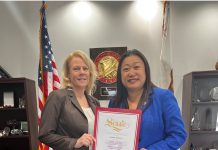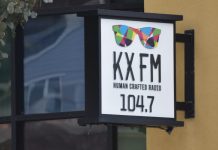The city started rolling out the green carpet last week but has yet to hammer in any nails.
In a City Council agenda heavy on ecologically friendly issues, the council passed a resolution to ban the use of plastic grocery bags, pending the outcome of a lawsuit over a similar ban in Manhattan Beach.
Several cities have been legally prohibited from banning plastic bags due to lawsuits by the Save the Plastic Bag coalition, arguing that municipalities failed to comply with the California Environmental Quality Act. Manhattan Beach recently lost an appeal to impose its plastic-bag ban and is appealing that decision. Other cities, such as Santa Monica and San Jose as well as Los Angeles County, are progressing with the environmental impact process. Residents of Los Angeles’ Fairfax district put the issue to a vote, where it passed, sidestepping CEQA requirements altogether.
The council also green-lighted an exploration of engineering options for burying utility lines along Laguna Canyon Road for safety reasons. The entire project was estimated to cost $20 million, a long-term undertaking since the city has been accumulating $95,000 annually from Edison for the last seven years to undertake such projects.
State regulators require utility companies to bury high-power lines. As of last January, allotments from Edison total $690,000. The city’s public works staff intends to tackle the project piecemeal, with a proposal to begin on both sides of the road in the area known as Big Bend.
Work is tentatively scheduled to begin in 2014 when Edison allotments would equal $1.5 million, which includes a five-year advance of $450,000. The cost of the first segment of the project is estimated at $1.5 million. The allocation is returned to Edison for doing the work, according to a city staff report. No city funds are expected to be involved.
City Manager Ken Frank also told the council that several cities are purchasing unused Edison allotments from other cities without utility undergrounding issues. Money from the city’s street lighting fund would be used.
The council also accepted a report from Chris Prelitz, chairman of the city’s Environmental Committee, on peak oil, which refers to the maximum global petroleum production rate when supply begins to decline.
Prelitz urged the council to plan for future scarcity by incorporating alternate fuel sources to avoid looming gasoline price hikes and spikes.
“We’ve stuck the straw in the ground and sucked up the easy-to-get oil and most people feel we’re about half-way through now,” said Prelitz. “It’s not so easy to get the rest of it.” Prelitz pointed out that a portion of the domestic oil supply comes from nations whose policies sometimes conflict with the U.S. “So getting off our addiction to oil would be a good thing for many reasons,” he said.
Local resident Arthur Winer, an environmental committee member and UCLA professor of environmental health sciences, told the council he’s been studying and teaching about peak oil for 15 years.
Experts, both optimistic and pessimistic, cluster the end of ready supplies of oil at 2010, Winer said. “There’s a lot of oil left, it’s just that we’re going to see a problem with supply-and-demand balance as we pass this peak,” he said. “So we need to plan for this seminal event in human history just as we prepare for earthquakes, for fires and for floods.”
Though Laguna is considered progressive, the city is “lagging behind Portland, Seattle, Chicago and San Francisco, which are well into planning process and implementation,” Winer said.
Prelitz suggested first steps. “Change the lights, open the windows, turn off the air conditioning at night in the winter time. Common sense things. We haven’t done square one in our city buildings.”
In other green matters, the council agreed to study a continuous sidewalk from north to south Laguna and along Laguna Canyon Road during next year’s budget deliberations. The path would encourage more pedestrian and bicycle traffic.
The council also unanimously agreed to oppose state Proposition 23 on the November ballot, which if passed would delay implementation of the Global Warming Solutions Act of 2006.




